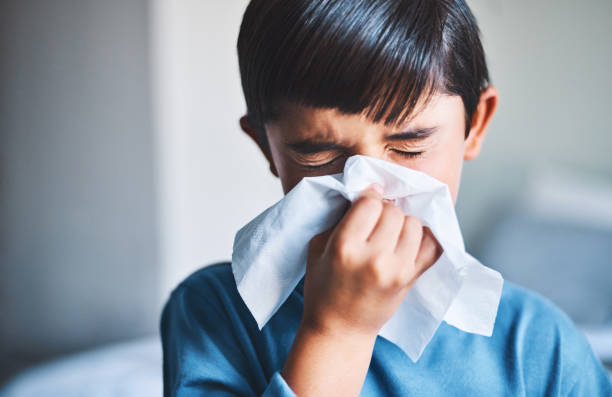
As a parent, it’s essential to keep our children happy and healthy. However, with the flu season around the corner, we need to be extra cautious. The flu can have severe consequences for children, especially those who have weak immune systems or underlying health conditions. But, what causes children to get the flu most often? In this blog post, we’ll explore the factors that increase the likelihood of a child contracting the flu.
Immature Immune System:
One of the primary reasons why children are more susceptible to the flu is their immature immune system. Children are still developing their immune system, and they haven’t been exposed to as many viruses as adults. Because of this, children’s immune systems may not be able to fight off the flu virus effectively, leading to more severe symptoms and longer recovery.
It can be difficult to know when your child may be suffering from an illness such as a cold. The symptoms are similar. The signs of flu could be sudden and be accompanied by: When you choose to learn detailed information on flu virus, you must sneak a peek at https://preventchildhoodinfluenza.org/ website.
Higher Exposure to Germs:
Another significant reason why children get sick more often is their higher exposure to germs. Kids touch everything around them, and they put their hands in their mouths and noses frequently. Besides that, children are often in close contact with one another, especially in school settings. This higher exposure to germs increases the chances of children picking up and spreading the flu virus.
Lower Humidity:
Research has shown that lower humidity levels can also increase the risk of catching the flu. In low humidity environments, the flu virus can survive longer and travel further in the air. This means that in winter, when humidity levels are lower, there’s a higher chance of children being exposed to the flu virus.

Underlying Health Conditions:
Children with underlying health conditions have a higher risk of catching the flu. For instance, children with asthma or allergies have weaker immune systems and are more susceptible to respiratory illnesses like the flu. Additionally, children with chronic illnesses like diabetes, heart disease, or kidney disease, are also more likely to develop complications from the flu, such as pneumonia.
Lack of Vaccination:
If your child is not vaccinated, the chances of getting the flu are much higher. The flu vaccine is the most effective way to prevent the virus and its complications. It’s essential to get the flu vaccine every year because the flu virus changes and evolves rapidly. Vaccination not only protects your child but also helps to prevent the spread of the virus in the community.
Conclusion:
In conclusion, children are more susceptible to the flu virus due to their immature immune system, higher exposure to germs, lower humidity, underlying health conditions, and lack of vaccination. As parents, it’s vital to take preventative actions, such as ensuring your child is vaccinated, washing hands regularly, and avoiding close contact with people who are sick. If your child does contract the flu, make sure to monitor them closely and seek medical attention if their symptoms worsen. Stay safe this flu season!